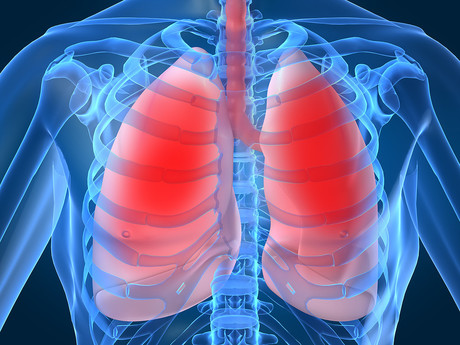Australians urged to 'know pneumonia' to curb infection rates

As part of Know Pneumonia Day (16 May), Lung Foundation Australia has released a dataset revealing that Australians are failing to be persuaded of the seriousness of pneumococcal pneumonia infection.
According to Associate Professor Lucy Morgan, respiratory physician and chair of the Lung Foundation Australia Respiratory Infectious Diseases Committee, more than 63% of survey respondents reported underlying risk factors that predispose them to contracting the illness — yet three in four Australians do not consider ‘life-threatening consequences’ as motivation enough to get vaccinated.
“Lung Foundation Australia’s Know Pneumonia research shows that ongoing efforts by healthcare professionals to raise public awareness of the seriousness of pneumococcal pneumonia infection are simply not resonating,” Associate Professor Morgan said.
“Pneumonia and pneumonia-like illness is among the top 15 contributing causes of death nationally and among the top five leading causes of hospitalisation in Australia.
“[But] even among high risk groups, such as those aged over 65, there are no overwhelmingly high motivators for vaccination.
“Of immediate concern is that only one in three (32%) research respondents aged 65 and above strongly agree their age puts them at risk of contracting pneumococcal pneumonia, while two in five (19%) of those who are yet to be vaccinated don’t even consider themselves to be at risk.”
While the research reveals 45% of respondents across all age groups would follow their doctors’ advice regarding pneumococcal pneumonia vaccination, factors such as fear of catching pneumonia and fear of outcomes from pneumonia only resonated among 27% and 22% of respondents respectively. Motivators including government recommendation and government enforcement resonated among even fewer respondents (13% and 12%), while only 2% of respondents rated health-appropriate vaccinations as their most important healthcare consideration.
The research also shows a significant gap between pneumococcal pneumonia vaccination rates (46%) and flu vaccination rates reported among respondents aged 65+ years (69%). Professor Robert Booy from the University of Sydney said there is clearly a discrepancy in awareness of pneumococcal pneumonia vaccination compared to flu vaccination — but health statistics reveal an even greater discrepancy between childhood and adult pneumococcal pneumonia vaccination rates.
“Many older adults care for a population of children who are mostly immunised against pneumococcal pneumonia, yet they fail to award themselves the very same protection,” Professor Booy said.
“With Australian children, we’re achieving 93% pneumococcal vaccine uptake. However, among equally vulnerable seniors, we’re failing to achieve even 50% pneumococcal vaccine uptake, which could offer up to five more years of high-quality life for an individual.
“Given grandchildren are at risk of passing the often-fatal lung infection onto their grandparents, and vice versa, protecting against pneumococcal infection would enrich their lives, allowing them to spend more quality time caring for, and interacting with, their grandchildren.”
Those at greatest risk of pneumococcal pneumonia include infants, people aged over 65 years, Indigenous Australians, those with impaired immunity, tobacco smokers and people with chronic illnesses such as asthma, COPD, diabetes, heart disease, kidney disease and liver disease.
Lung Foundation Australia CEO Heather Allan said that this year, Know Pneumonia Day aims to encourage all Australians, especially those in high-risk groups, to know pneumonia and address complacency.
“Australians are aware of the importance of eating well and exercising regularly, but as a population we are extremely complacent when it comes to protecting against pneumococcal infection, including good hand and home hygiene and vaccination,” Allan said.
“We encourage all Australians, particularly those in high risk groups, to really know pneumonia, recognise that it is life-threatening and take appropriate steps to protect against this preventable infection.”
Pneumococcal vaccination is funded under the government’s National Immunisation Program (NIP) for all Australians aged 65 years and older, Indigenous Australians aged 50 years and over, and Indigenous Australians aged 15 years and over who are medically at risk. A second dose of vaccine is also available to many Australians a minimum of five years following their first dose.
The vaccination is subsidised on the PBS for all adults aged 18 years or over who are medically at risk, such as those with chronic lung, heart or liver disease or diabetes.
Non-invasive 'virtual' biopsy for skin cancer diagnosis
Researchers have developed a new imaging method that allows clinicians to analyse the skin...
UTI vaccines could prevent infection for nine years
MV140 is a new vaccine for recurrent UTIs and is administered with two sprays of a...
What's the key to retaining rural GPs?
Understanding doctors' decisions to stay or leave, once recruited, could provide insights on...










